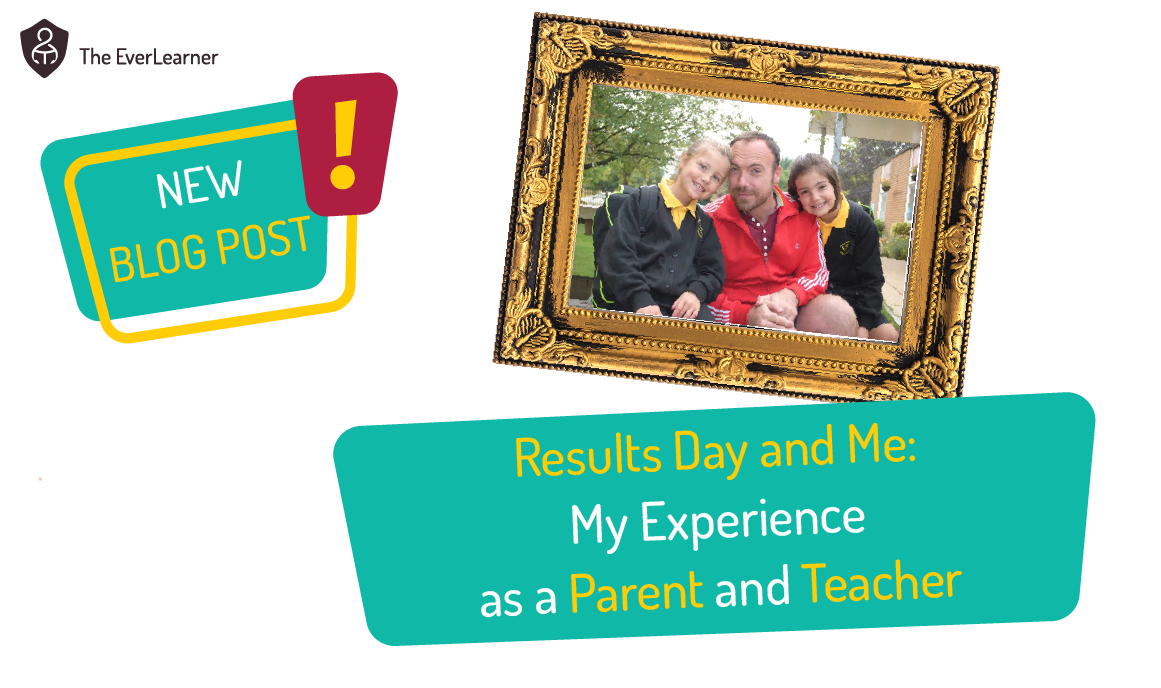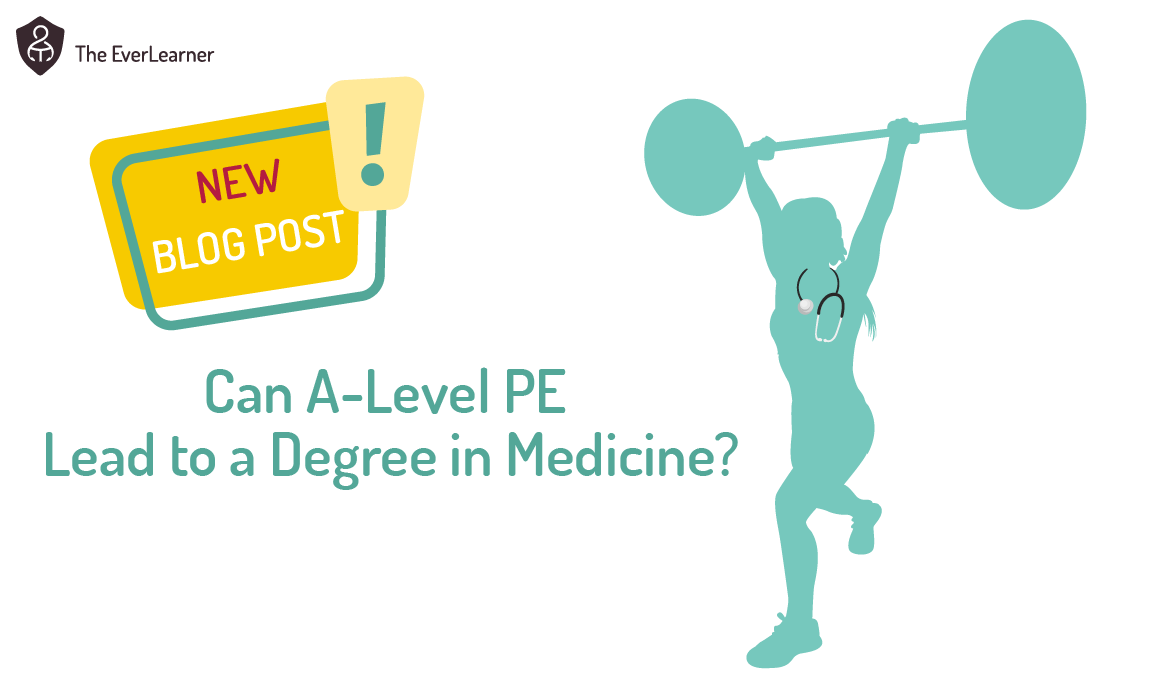Can A-level PE lead to a degree in medicine? Part 3
Dear readers,
Two of my most popular blog posts ever were "Can A-Level PE Lead to a Degree in Medicine? Part 1" and "Can A-level PE Lead to a Degree in Medicine? Part 2" - my writing on whether A-level PE was a good subject choice for going on to study medicine. These two posts were extremely popular with my core audience who tend to be PE teachers and students but, interestingly, we also got a significant response from other groups including parents and even educational forums. For these reasons, I wanted to complete the cycle of writing and bring the story to its natural endpoint. What actually happened? Are we a household containing a medical student now? This post will reveal all.
As you will have read in "Can A-level PE Lead to a Degree in Medicine? Part 2", my elder daughter, Anna, received her offer from Belfast Queens to study medicine and she was awaiting both her exams and grades for her A-levels to access her course. Anna went on to achieve A* (in PE, of course!), A, A and this meant she had the grades to accept her place at Belfast. Anna’s mum and I were excited. We had that parental tickle in our tummies that one gets when their kids are “successful”. Like, I presume, every parent out there, we know that happiness and confidence and general well-being are far more important than academic success but we also can’t help feeling proud and satisfied when things go well. Anna got her grades and a degree in medicine was awaiting.
But Anna had told us some interesting things during the exam period and in the run-up to results day. She’d said things like:
So, there was uncertainty in what she would do and, once the results were in, Anna told us, categorically, that she was not attending university in the coming year. Rather, she was taking a gap year and would go travelling.
From this point, Anna approached Belfast University and asked if she could defer. The thinking was that the gap year would give Anna time to consider, do some thinking and decide whether to fulfil her place in medicine or reapply to UCAS. Belfast, as they have every right to do, told Anna that, no, deferral was not an option in this case and that she must confirm her attendance for the coming year or reject her place.
As a household, we were pretty gutted. Mum and Dad thought that rejecting the place was the sort of decision one might regret and daughter was adamant that she knew what she wanted to do with the next twelve months. Understandably, Anna told us:
Therefore, and with both parents feeling rather tense about it, Anna rejected her offer of a place for medicine at Queen’s University Belfast.
I want to pause here and make two observations. The first is that I must admit on an individual level that I wanted Anna to accept the place. Rightly or wrongly, I was allowing my own dreams for my daughter to overtake those that she had for herself. I tried so hard to tread cautiously but determinedly with her during those conversations and I tried to ensure that she realised how big an opportunity she was releasing. The second observation is simply to answer the basic premise of this blog post. Yes, an A-level in PE can DEFINITELY lead to a degree in medicine.
Anna rejected the opportunity to study medicine at Belfast. She simply stuck to the premise of “this is what I want”. I respect this greatly in my child. I admire her for it but, of course, my little father's heart needed a few hours to recover.
Anna did the gap year thing brilliantly! She worked full-time at a local gym and health club between August and February and then, in February 2024, she departed the UK on a flight to Melbourne, Australia and she was gone for the next four months. In that time, Anna toured the East coast of Australia, the West coast of Australia and she spent three weeks touring Bali and Indonesia. The latter two legs of this trip she did by herself, as her friend L had returned home to the UK early. It was tense for us back home but she seemed to love every moment apart from an unpleasant incident when a Balian monkey mugged her for her croissant.
But what about the course? What about the university place and medicine?
Before Anna left for the southern hemisphere, she told us how relieved she was to have chosen not to study medicine as a response to not being permitted to defer. In fact, she told us that she had decided, categorically, that she didn’t want to be a doctor. Instead, Anna reapplied to UCAS and, this time, applied for physiotherapy degrees.
Anna received three offers for physiotherapy and now, in December 2024, she is approaching the latter weeks of her first semester studying physiotherapy on the South Coast (she asked me not to mention specific universities). She has settled in halls, she’s made what appears to be three really close friendships with three young women who all study either physiotherapy or sports therapy and she has her house rental secured for year 2. She’s playing table tennis (her sport) on a regular basis and is studying (and partying) hard. She’s been home twice since she’s been away and our weekends as a family of four again are really special. I couldn’t be more proud of her. I actually drove and collected her last Friday as she was home for 48 hours and the first 40 minutes of the drive she was just teaching me about the anatomy of the lower quadrant. Those of you who know me well will realise how much I love this. It’s also worth mentioning how happy Anna is that she studied A-level biology and chemistry too. Whilst chemistry, for example, is not often explicitly taught on the physiotherapy degree, having a really robust background in the subject means that one can understand the basis of concepts and theories better.
So, what can be learned from all this?
Firstly, I want to doff my cap to my daughter and to young people in general. The idea that “this generation is all fragile and flakey” is absolute ****shit! As I have always known, young people, on average, are awesome. I have far, far more concerns about my own generation than the younger one. Secondly, I want to emphasise how valuable it has been to have a close relationship with my daughters whilst they apply through UCAS and prepare for their exams as well as when they make their life decisions. My younger daughter, Georgina, is currently in Year 13 and has applied to universities to study law from September 2025. So far, she has three out of five offers on the table and is awaiting the final two. I can see the motivation that this has provided. It has given her both a more specific as well as stronger drive to achieve. Of course, grades will be the decisive factor but I know she’s going to give it a right good go. Thirdly, I want to stress how much I have enjoyed writing these three posts. I publish every week and the opportunity to do so on a personal level has been really rewarding.
Conclusions
A-level PE can definitely lead to a degree in medicine. There is no doubt about that! But I also wanted to stress that any application to medicine is really, really challenging. Anna made five applications and got one offer. This in the context of being a brilliant and well-rounded student. An application to medicine should not be underestimated. Having said this, and even though Anna turned her place down, I am so, so, so proud that she was offered a place. It was an amazing achievement and one that so few of us will reach. OK, it wasn’t for her. That’s fine and she is happy and flourishing in her chosen vocation. Finally, I want to speak to parents out there. Providing challenge for one’s children is essential. However, I must admit that I had wanted the medicine course, to some degree, for myself. Maybe that is why I wrote the blog in the first place. But my daughter put me in my place:
Brilliant!
Thanks for reading.
James
(Deeply proud dad of a physiotherapy undergraduate and A-level student).
%20Text%20(Violet).png)


